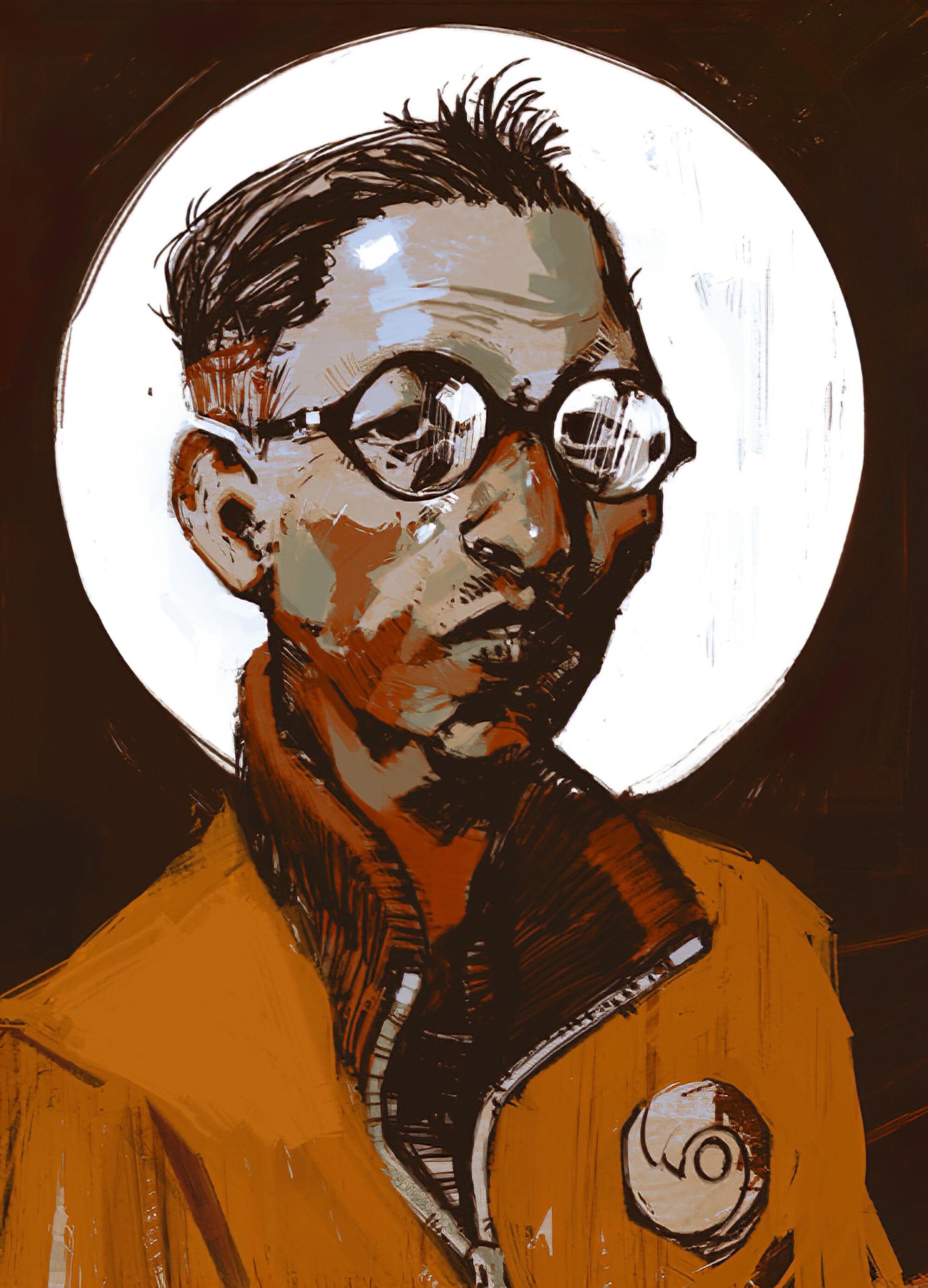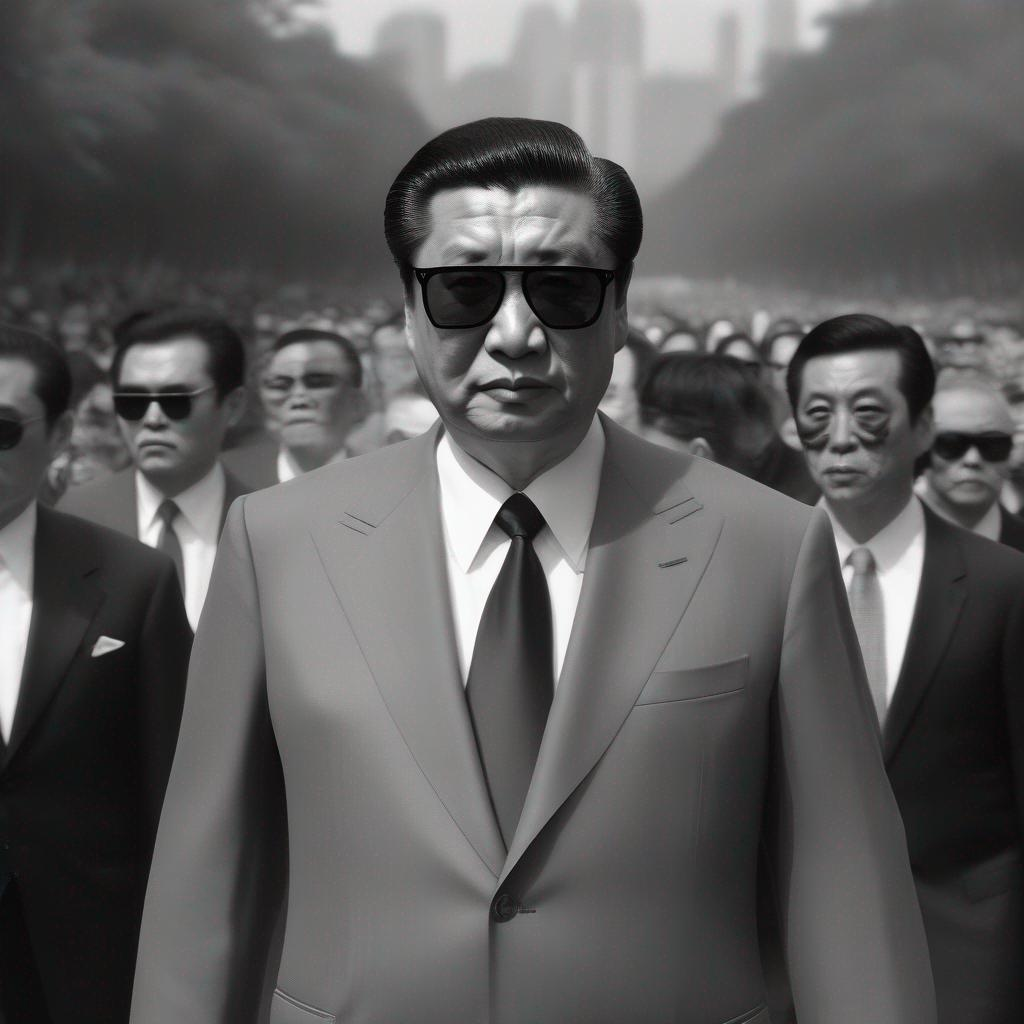It's summer, long days for reading cool books.
(If you're reading theory, maybe also hit us up with a cool quote you've read lately if there's something poetic that sticks out!)
@Pisha@hexbear.net
@Nakoichi@hexbear.net
@robinn2@hexbear.net
@FloridaBoi@hexbear.net
@FourteenEyes@hexbear.net
@HiImThomasPynchon@hexbear.net
@copandballtorture@hexbear.net
@SunsetFruitbat@hexbear.net
@Judge_Jury@hexbear.net
@GeorgeZBush@hexbear.net
@Queryfullness@hexbear.net
@GaveUp@hexbear.net
@RonJonGuaido@hexbear.net
@StewartCopelandsDad@hexbear.net
@Wertheimer@hexbear.net
@NoGodsNoMasters@hexbear.net
@Snackuleata@hexbear.net
@Utter_Karate@hexbear.net
@TheCaconym@hexbear.net
@LeninsBeard@hexbear.net
@CTHlurker@hexbear.net
@JuneFall@hexbear.net
@duderium@hexbear.net
Haven't been reading much. Just started Walter Rodney's How Europe Underdeveloped Africa because of the Niger situation. Already Rodney goes incredibly hard:
But, contrary to the fashion in most prefaces, I will not add that “all mistakes and shortcomings are entirely my responsibility.” That is sheer bourgeois subjectivism. Responsibility in matters of these sorts is always collective, especially with regard to the remedying of shortcomings. The purpose has been to try and reach Africans who wish to explore further the nature of their exploitation, rather than to satisfy the “standards” set by our oppressors and their spokesmen in the academic world.
This is a cool book. It gets a little dry any into the weeds sometimes about very specific regions but will then out of nowhere start going hella hard again. I think there's a chapter early on that's very long and talks about the different regions of Africa and their history - I recommend pushing through as it's worth it in the end. I want to read his other books now too, and have one on the bookshelf for later in the month.
I'm reading 4 books rn.
Blood in my Eye by George Jackson (1971) is a blassic, and a total banger. Prison Essays by Black Guerrilla Family founder. He's thinking very deeply about the solutions to many problems we still face today, in some ways it's tragic that this book is still so relevant. Poetic, fiery, contemplative. Here's a bit of text I came across yesterday:
- Prisons were not institutionalized on such a massive scale by the people. Most people realize that crime is simple a result of gross disproportionate distribution of wealth and privilege, a reflection of the present state of property relations. There are no wealthy men on death row, and so few in the general prison population that we can discount them altogether. Imprisonment is an aspect of class struggle from the outlet.
Ministry for the Future by Kim Stanley Robinson (2020) is solid so far. I don't read scifi much because I often find the writing is weak, but this is pretty well-written. The first chapter is a banger standalone short story about a multi-day wetbulb in Mumbai - legitimate climate horror. The rest is about the downstream responses from different types of groups, from lib technocrats to radicals and revolutionaries. I like the approach that all the chapters have different styles, like one might be a poem, one might be a description of the biggest oil extraction corporations on Earth, another might just be a diary entry of an unnamed character we never met again. Apparently he a (democratic) socialist, which is cool.
The Progress of This Storm by Andreas Malm (2017) is an interesting project. It's an effort to take newer philosophical trends in critical theory (in opposition to dialectical materialism) and submits them to an analysis about whether they are clarifying or mystifying, activating or pacifying with respect to the climate crisis. If you're going to read some Malm I'd say this is probably his least urgent text, but he is often at his most fun when he starts swinging around his baseball bat wrecking shit, and there's a lot of that in here even though sometimes I wonder if he's strawmanning some of the philosophies he trashes.
- We should conclude...that building a new coal-fired power plant, or continuing to operate an old one, or drilling for oil, or expanding an airport, or planning for a highway is now irrational violence.
Climate Change as Class War by Matthew Huber (2022) - good title, but there's a lot of nonsense in this book.
I also just read Gabriel Rockhill's new essay in June's edition of Monthly Review: The Myth of 1968 Thought and the French Intelligensia: Historical Commodity Fetishism and Ideological Rollback. I think this guy has an interesting project and am looking forward to all of this being collected in his book so I can read it in one coherent thread. His basic push is to, bit by bit, examine all the theorists that are held up as "radical postwar thinkers" in the West and just feed them through the simple rubric of asking what actual socialist or anticolonial movements did they actually support, if any? His broader theory is that these not radical "radical theorists" play a functional role in capitalist hegemony to appeal to people open to considering an alternative to this system and redirecting them away from the actually effective project of scientific socialism.
+1 for Gabriel Rockhill, I recently discovered him and he's very good, lots of lectures online from his Critical Theory Workshop
Interested in hearing your thoughts when you finish MFTF. The first chapter is definitely the best part of the book, but I was fascinated by a lot of the other ideas KSR came up with. I read somewhere that it's his best case scenario outlook for our climate future, which is both bleak and yet still much more hopeful than I personally think it will be. Would also love it if airships made a comeback.
I’m reading Moby Dick (annotated Norman Critical Edition) and really liking it so far. The annotation helps quite a bit with understanding the historical and literary references.
Listening to The Jakarta Method thanks to a suggestion by a Hexbear user. Holy shit, I can’t believe how uninformed I was about Indonesia. Far more important for the US in the 1960s than Vietnam.
Trying to listen to Culture and Imperialism by Edward Said, but I’m finding myself bored in the first few chapters and might give up.
Theory list I am very gradually (over months) reading:
-Theories of Surplus Value
-Socialism, Utopian and Scientific
-Grundrisse
-Art in the Age of Mechanical Reproduction by Walter Benjamin
-Intellectual and Manual Labour by Alfred Sohn-Rethel
-For fun, a book from an art exhibition, called The Economy Is Spinning which takes influence from Sohn-Rethel among others
Listening to The Jakarta Method thanks to a suggestion by a Hexbear user. Holy shit, I can’t believe how uninformed I was about Indonesia. Far more important for the US in the 1960s than Vietnam.
:suharto-die: emoji needed.
I'm finally getting around to Earthsea. Reading Le Guin is just always a pleasure.
my local library and the next city over have no thoery or any leftist lit :(
We don't even have a local library anymore, so most of my reading is done through digital means. Here are some useful sites to get you started:
- Introduction to Socialist Thought Link directory of various sites, podcasts and videos introducing socialist theory, as well as information about leftist bookstores and zines.
- Marxists Internet Archive For general Marxist theory and works.
- The Anarchist Library For anarchist and anti-fascist texts.
- Red Sails For Marxist-Leninist texts.
- The Michael Parenti Political Archive Collection of Michael Parenti's articles, also includes information about books he's published.
- CURRICULUM OF THE BASIC PRINCIPLES OF MARXISM-LENINISM PART 1 The Worldview and Philosophical Methodology of Marxism-Leninism Vietnamese textbook on Dialectical Materialism, translated by Luna Nyugen (aka Luna Oi!). A physical copy of the book can also be bought through their website.
Reading the communist manifesto is kinda neat, it gives a lot of vocabulary and while some is outdated (Capital is published decades later for example), it still is a nice fast read.
I can, however i am worried about the nice library lady knowing i am a communist ;-; (we live in a super conservative area and i don't want funny looks for the bext 5 years)
Maybe the nice library lady is a communist!
Libraries are based on left principles, the discipline tends to attract a lot of radicals
Finally got around to reading Grapes of Wrath a few weeks ago, definitely recommend it. It's flat out leftist propaganda. there's like 3 N-words in there for no reason, but other than that it's pretty tame. Anyone that read The Parable of the Sower, would probably dig it.
Currently slogging my way through John N. Hazards The Soviet System of Government it's interesting, when you can gleam information from it. But jfc the bias and bullshit. Flat out Parenti quote type stuff. There's a thing I'm learning academics (and "objective" authors) do where they'll give seemingly positive examples and then claim that these things are positive only for outward show and then they'll claim that anecdotal evidence from randoms and refugees and whatnot actually prove these policies and things are evil... But they won't include any of those anecdotes. It's very weird and I can't imagine all but the most
 sort of folks would accept that sort of bullshit, but people do I guess. It's very slow going because of how often I'm rolling my eyes.
sort of folks would accept that sort of bullshit, but people do I guess. It's very slow going because of how often I'm rolling my eyes.I was reading a random biography of Kafka the other day and couldn’t stand the author’s relentless anti-communism. On his wikipedia page it said he had worked for the OSS 🤮
Just noticing lately that almost whenever I pick up any kind of lib or progressive history book that isn’t blatantly Marxist the author will find a way to trash communism in the opening pages somewhere, presumably so that worried liberals can be reassured that they aren’t actually reading anything that will threaten their precious careers.
Negroes with Guns by certified hardcase Robert Williams. I recently finished This Nonviolent Stuff and while it was a great book, there were points where I found myself thinking "Charles Cobb has done a lot of good, but man is he a bit of a lib about some things. I'd like to learn more about this guy who's protection team set up sandbag positions around an NAACP organizer's house and shot up a Klan convoy that had come to dynamite it. I'd like to subscribe to that guy's newsletter."
Been re-reading Kafka’s The Metamorphosis and suspecting that Gregor Samsa did not actually turn into a beetle. I think it’s all in his head and that he’s just crazy and thinks he’s an insect. I think this because:
- he gets transformed into a “vermin,” which could actually be a person;
- Kafka’s father, with whom he had a Freudian relationship, frequently called people he disliked “vermin”;
- Kafka said that the “vermin” should not be illustrated at all;
- does Gregor’s family really act like they’re in the same house as a giant beetle or a crazy person?
I recently read "Freshwater" by Akwaeke Emezi. It's a realistic narrative of the spirits inhabiting one person, which is a very good conceit. The protagonists are always at a distance to any action or other characters, so that the plot was more reflected upon than enacted. Parts of the book seemed a bit rushed, but maybe I just wanted it to keep going on. It's really a wonderful read.
Just finished "The Devil's Chessboard." The book really goes out of its way to shower JFK with praise, but it's quite informative with regards to how the security apparatus took a central executive position in US government. I'm pretty convinced at this point that Kennedy was killed by an op spearheaded by Allen Dulles
Since finishing the book, I've started reading Marx's Capital. I didn't expect to read the phrase "One coat equals twenty yards of linen" over 50 times, but here we are. The book got much more engaging once it started laying out what "capital" is and how it differs from an equal exchange of commodities.
I've been reading Mutiny: A History of Naval Insurrection by Leonard F. Guttridge. It's funny cuz he's a labor historian and his sympathies are clearly with the sailors in most cases, but it's published by a naval press and the intended audience is clearly officers. Also there's a chapter on the Kronstadt sailors.
nothing cool, just technical manuals relevant to my field of work. Same old shit.
W.E.B. Du Bois’ Darkwater. I was reading about the East St. Louis Massacre of 1917 (it’s horrific) and wanted to learn more.











